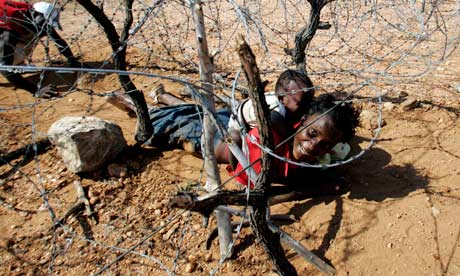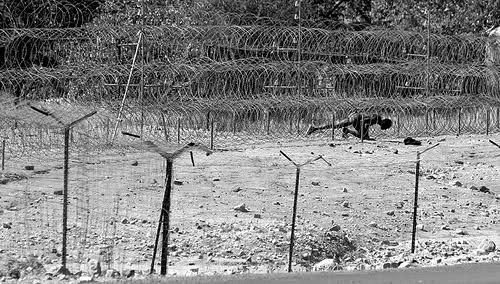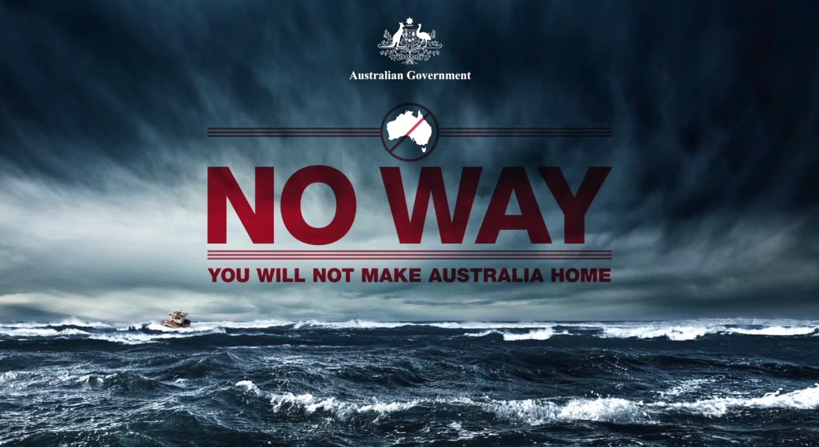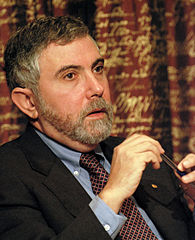Last week, we published an excerpt from journalist Stephan Faris’s thought-provoking book, Homelands: The Case for Open Immigration. A cheap, USD3 buy on Amazon, it is worth reading — if only for the compelling way he argues that modern border regimes constitute apartheid. A taste from the excerpt we carried:
To be sure, there are differences between the global system of immigration restrictions and South Africa’s attempt to entrench white privilege through the partitioning of its territory. But it should give us pause to think that when the architects of one of history’s most recognized evils set out to codify their system of injustice, they looked at our borders and passports and saw a lot to like. Intentions aside, the biggest difference between the two is that the South Africans wanted to draw the boundaries and assign the nationalities. We make do with the existing ones.
Now, we bring you an exclusive interview with Stephan himself.
In Homelands, you reach a radical conclusion — that modern border controls are essentially unjust and illegitimate. You outline a thought-provoking case, but I’m especially interested in the experiences and insights that motivated you to reach this conclusion in the first place. What is the intellectual journey, so to speak, that led to this conclusion?
The idea came to me slowly, when I was a reporter writing mostly for Time Magazine out Africa. Across the continent, I kept having the same conversation, brief and to-the-point with people I hardly knew at all. A motorcycle taxi driver in Lagos would drop me off and then ask “How do I get to your country?” A young man at an Internet cafe in Kenya would do the same. And again, from a hotel clerk in Zimbabwe. “How do I get to your country?”
I can’t remember what I’d say to them. But the real answer was embarrassing. Put bluntly, it was: “You probably can’t. You’re young and African. The chances that you’ll be let in are vanishingly small.” That’s what got me thinking about the problem in those terms.
My experience has been that people anchor heavily to the status quo on immigration, making it difficult to even begin explaining to people that most immigration laws are unjust and unfair. Before you can begin, you have to overcome the sense that if we abolish border controls, then everything will collapse. Did you encounter this yourself in the process of outlining your ideas, and are you satisfied with the way you handle this sort of response in the book? Looking back, would you change anything about your argument?
The book is driven by an analogy between the status quo on immigration and the policies of South Africa’s apartheid regime. That in itself puts forward a couple of arguments that I find compelling. First of all is the moral case. If the immigration policies resembles apartheid, we have to grapple with that if we want to maintain the status quo. Secondly, apartheid eventually came to an end, and the result has hardly been as disastrous as many predicted.
How in general has the response been to your book, now that it’s been out for several months? Was it better or worse than you expected, and are you planning any follow-ups? What most surprised you about the response?
As a writer it’s always difficult to get a feel for how readers respond to your work. My feeling, however, is that the emotional argument has resonated with a lot of people, but the conclusion remains hard to accept. As you point out, the idea is fairly far beyond the bounds of what most people are willing to consider.
You are not the first person to describe immigration restrictions as a form of apartheid, but I think your most original contribution to the conversation has been a clear articulation of how apartheid was modeled on immigration restrictions and why the analogy between the two is so apt. How did you come across this connection in the intentions of apartheid’s architects? Are there other historical or modern parallels that you considered drawing?
I don’t remember exactly how I came across it or came up with it. I wrote a brief piece on the subject in 2005 or 2006. However, I’m not the first person who came up with it. I later came across a fantastic chapter in a book by the Stanford anthropologist James Ferguson, in which he made a similar comparison. In Homelands I make a reference to Lesotho, as a tiny country with which potential Bantustans could be compared. That’s an analogy I learned about from Ferguson.
In some sense, the analogy between apartheid and immigration restrictions is obvious: both are mechanisms by which a particular social group seeks to preserve its purity via coercively excluding other people. However I imagine this analogy doesn’t work for many, because they consider racial discrimination illegitimate, while discrimination on the basis of nationality is legitimate. How would you address this?
The question we have to ask ourselves is what is it about nationality that makes it legitimately grounds for discrimination. Nationality, like race, is not something people choose or are responsible for.
To allay concerns about the effects of liberal border laws, you discuss how the economic nightmare predicted by naysayers on the eve of apartheid’s abolition never came to fruition. But economic arguments don’t necessarily carry the day in a conversation about nationality and political institutions. How would you respond to concerns about the political and social effects of open immigration?
Those concerns are real, but as with apartheid, you have to weigh them against the injustices and distortions resulting from the status quo. I think we’ll find that the discomforts resulting from open immigration will pale when compared with the suffering that is alleviated by allowing people to move where to places where they can better themselves.
I imagine most people of liberal politics are somewhat sympathetic to liberal immigration laws. Why do you think there is such resistance, even among those with such sympathies, to the idea of truly open borders, or at least open immigration regimes, with visas available to most? What barriers do you see to convincing a typical liberal person that most immigration restrictions are unjustifiable?
I’m not sure that views on immigration laws fall neatly along the traditional lines between left and right. Concerns about the impact of open immigration on workers’ rights is certainly widespread among many on the left. Again, however, I’d argue one needs to extend our circle of concern beyond our co-nationals, and then it becomes pretty clear that lightening restrictions on immigration is broadly beneficial.
I think it is particularly fitting that this interview with Stephan follows on our inaugural blog post from migration scholar Katy Long, where she observed that we cannot blindly cite national borders as reason enough to wall out those not fortunate enough to be born in our home countries:
Rights of inheritance, ‘special’ family bonds, and Old Boys’ Networks entrench a great deal of privilege and power in our communities: look at the political dynasties that sit in Parliaments and Congresses, or the wealthy oligarchs who will their children vast fortunes. “Close ties” have a habit of spilling from protection into nepotism. In other words, acknowledging that borders may protect some of the most vulnerable close to us does not mean that we can ignore the fact that the inequalities between citizenships are often much more acute than the inequalities within our own communities.
For the effects of birthplace upon life chances cannot be overstated. In 2012, the World Bank concluded that ‘more than fifty percent of one’s income depends on the average income of the country where a person lives or was born … a very large chunk of our income will be determined by only one variable, citizenship, that we generally acquire at birth’. Where we are born determines to an enormous extent both how likely it is we are going to need to move, and also how free we will be to do so.
Harvard and former World Bank economist Lant Pritchett, another notable who labels our border regimes tantamount to apartheid, has a poignant way of illustrating Stephan’s and Katys point in his seminal book, Let Their People Come:
The analogy between apartheid and restrictions on labor mobility is almost exact. People are not allowed to live and work where they please. Rather, some are only allowed to live in places where earning opportunities are scarce. Workers often have to travel long distances and often live far from their families to obtain work. The restrictions about who can work where are based on conditions of birth, not on any notion of individual effort or merit. The current international system of restrictions on labor mobility enforces gaps in living standards across people that are large or larger than any in apartheid South Africa. It is even true that labor restrictions in nearly every case explicitly work to disadvantage people of “color” against those of European descent.
The obvious response is that with apartheid people of the same nation-state were treated differently while the apartheid of international barriers to mobility is is treating people of different nation-states differently. People subject to the same laws should be treated the same based on conditions of birth. The fact that people are, by whimsy of birth, allocated to different nation-states and hence treated differently has no moral traction. In nearly all modern theories of justice and ethical systems, most conditions of birth—one’s sex, race, and ethnicity—are excluded as morally legitimate reasons for differences in wellbeing, and yet discrimination on the basis of nationality is allowed.
…Amartya Sen has popularized the notion of “missing women” in Asia due to differential death rates and (increasingly) sex-selective abortion. Because the child mortality rate in India is about 100 per 1,000 while it is 8 per 1,000 in the United States, this implies that 92 per 1,000 more Indian children than U.S. children die before age five. This means there are 2.2 million missing Indian children each year. However, while the “missing women” is a standard refrain, I have never heard the term “missing Indians” to describe the results of the child mortality differentials between the rich world and India.
The Bantustans that Stephan draws our attention to still exist, even if few of us had anything to do with their creation, as Pritchett’s book points out with a compelling thought experiment:
There are 10 million people in the Sahelian country of Niger; if there were globally free labor mobility and only 1 million lived in Niger now, how many people would move there? Though some people might say that this creates a case for more aid or freer trade, it is hard to believe that if people moved out of Kansas because farming was no longer an attractive opportunity, then the best that can be done for the people of Niger or Chad is that they get slightly more assistance and slightly better prices for the items they grow.
Most of us remain blind, willfully or otherwise, to the suffering and waste of human potential that our countries’ immigration laws engender. All credit to scholars like Stephan, Katy, and Lant Pritchett, who can never be thanked enough for their tireless work aimed at exposing the regime of global apartheid for what it is.
 Buy Stephan Faris’s Homelands: The Case for Open Immigration on Amazon
Buy Stephan Faris’s Homelands: The Case for Open Immigration on Amazon
 Buy Katy Long’s The Huddled Masses: Immigration and Inequality on Amazon
Buy Katy Long’s The Huddled Masses: Immigration and Inequality on Amazon
The image featured at the top of this post is of a mother with her child crawling under the South African fence bordering Zimbabwe, taken by Themba Hadebe for the Associated Press in 2010 and published in The Guardian.


![Let%20Their%20People%20Come[1]](http://openborders.info/wp-content/uploads/2015/02/Let-Their-People-Come1.jpg) Download free or buy the paperback of Lant Pritchett’s Let Their People Come: Breaking the Gridlock On Global Labor Mobility from the Center for Global Development
Download free or buy the paperback of Lant Pritchett’s Let Their People Come: Breaking the Gridlock On Global Labor Mobility from the Center for Global Development



![t1larg.sfax.boat.gi.afp[1]](http://openborders.info/wp-content/uploads/2015/01/t1larg.sfax_.boat_.gi_.afp1_.jpg)
